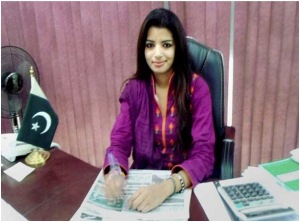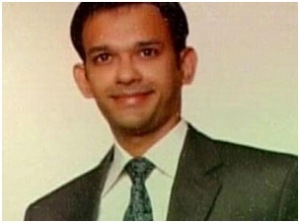 The 24-year-old journalist and activist Zeenat Shahzadi remains missing.
The 24-year-old journalist and activist Zeenat Shahzadi remains missing.
After disappearing on her way to work in August 2015, all attempts to learn of her whereabouts have failed. Losing hope, her younger brother committed suicide on March 24, 2016.
Prior to her disappearance, Shahzadi was pursuing the safe recovery of a young Indian engineer arrested by Pakistani intelligence agencies in November 2012. Although he has recently been produced and sentenced by a military court for entering Pakistan illegally, still there is no news of Shahzadi’s whereabouts.
Based on information received from Human Rights Commission of Pakistan, ( http://www.firstpost.com/india/missing-mumbai-techie-hamid-ansari-found-in-custody-of-pakistani-army-2585182.html), The Express Tribune (http://omnifeed.com/article/tribune.com.pk/story/1076159/disappearance-govt-urged-to-recover-missing-journalist/) + http://www.dawn.com/news/1226830 + NDTV (http://www.ndtv.com/world-news/family-of-missing-pak-journalist-who-helped-indian-seek-nawaz-sharifs-help-1291215), The Telegraph (http://www.telegraphindia.com/1160328/jsp/nation/story_76845.jsp#.Vv45B0dJejc).
On August 19, 2015, Zeenat, working for the Daily Nai Khabar and the Metro News television channel in Lahore, Punjab, disappeared while on her way to work in an auto-rickshaw. She was to appear before the Commission of Inquiry on Enforced Disappearances on August 24, but before that she was disappeared by plain-clothed persons. Police registered an abduction case against “unknown men”.
According to Zeenat’s older brother Latif, Zeenat had moved an application with the Supreme Court’s human rights cell on behalf of Fauzia Ansari, mother of Hamid Ansari, an engineer and MBA from Bombay reported missing in Pakistan since Nov 2012.
Being a social worker and journalist, Zeenat got interested in the case after reading stories about Ansari’s love story with a Pakistani girl from Kohat, KP where the parents of the girl wanted to marry her in their family to help for his recovery. The girl had met Ansari through Facebook.
In August 2013, Zeenat secured a special power of attorney from Fauzia, mother of Ansari and a college lecturer in Mumbai. Ansari’s father Nihal is a retired bank official.
 The then 28-year-old Indian techie had failed to obtain a visa to visit Pakistan. Ansari arrived in Kabul on Nov 4, 2012, and somehow reached Pakistan. He put up with an online friend till another friend booked him a hotel room in Kohat. On Nov 14 that year, the station house officer (SHO) of police took Ansari away and handed him over to an officer of a security agency. Attempts to register an FIR for his arrest and detention failed.
The then 28-year-old Indian techie had failed to obtain a visa to visit Pakistan. Ansari arrived in Kabul on Nov 4, 2012, and somehow reached Pakistan. He put up with an online friend till another friend booked him a hotel room in Kohat. On Nov 14 that year, the station house officer (SHO) of police took Ansari away and handed him over to an officer of a security agency. Attempts to register an FIR for his arrest and detention failed.
In the meantime, Zeenat sent an application to the Commission of Inquiry on Enforced Disappearances, which ordered the registration of an FIR in 2014. She also filed a habeas corpus plea before the Peshawar High Court.
Latif said Zeenat had received threats from unknown people who asked her not to pursue the case. “We too asked her not to put her life at risk, but she said she wanted to help Ansari out of humanity.”
On Jan 11, 2016, the Deputy Attorney General of Pakistan, Mussaratullah Khan informed the Peshawar High Court that the defence ministry had revealed that Ansari was in the custody of the army and was being court-martialed.
In the Month of February, a military court is said to have jailed Ansari for three years on the charges of illegally entering Pakistan and “spying”.
However, Zeenat’s whereabouts are still unknown. On March 24, her younger brother Saddam Hussain, a 12th grade student, committed suicide by hanging himself. He was depressed about her sister. His elder brother, Latif, says his father is still in shock and has stopped talking, and her mother remains in a coma. Zeenat’s disappearance has been included among the missing person’s cases being probed by a joint investigation team (JIT). The JIT has said the case from her family will be heard in April, but no date has been announced.